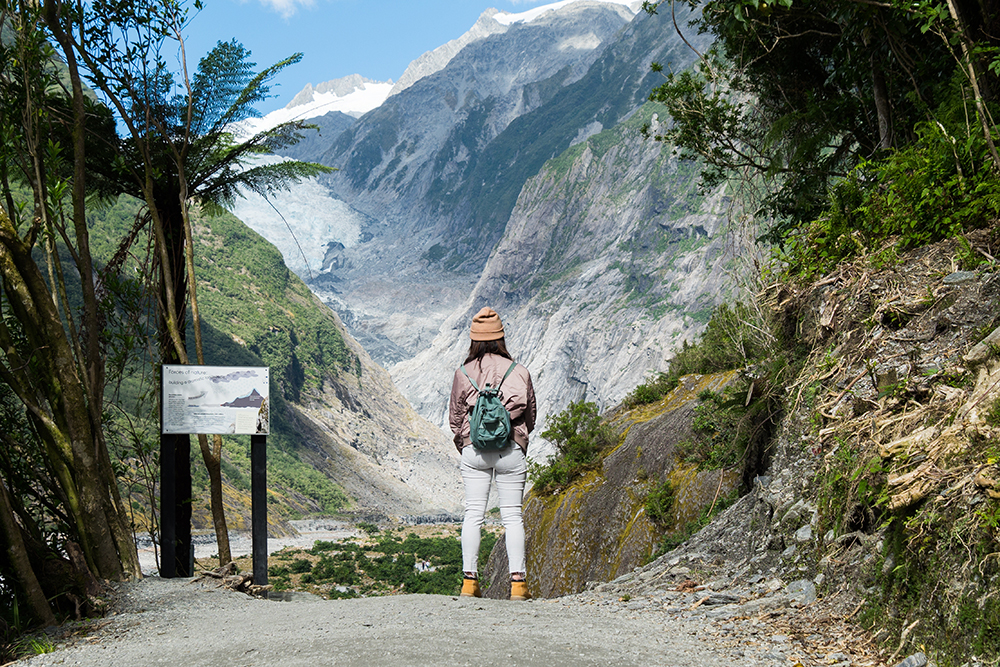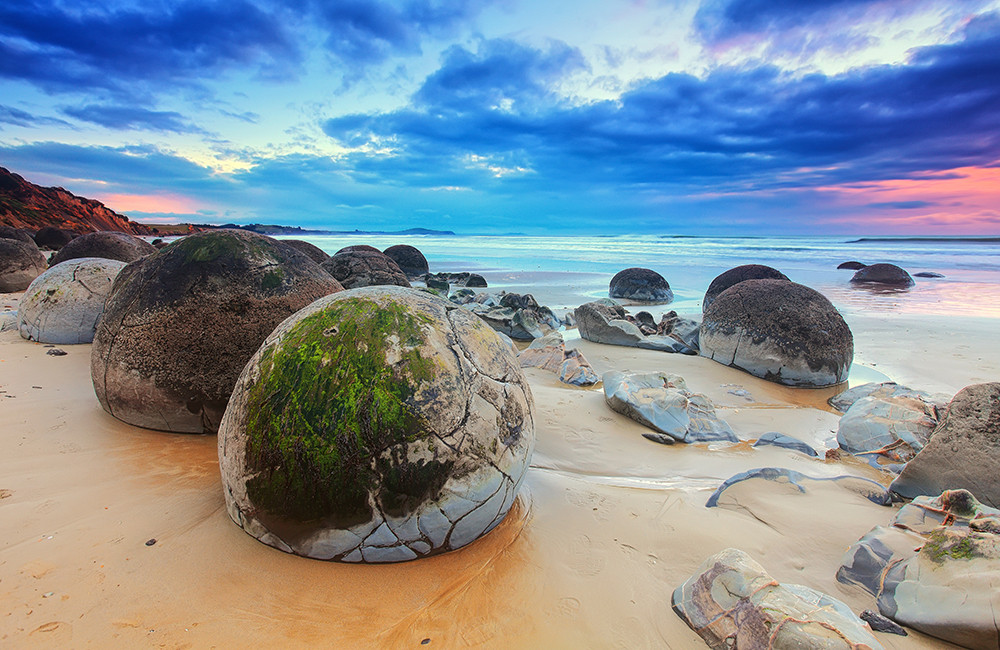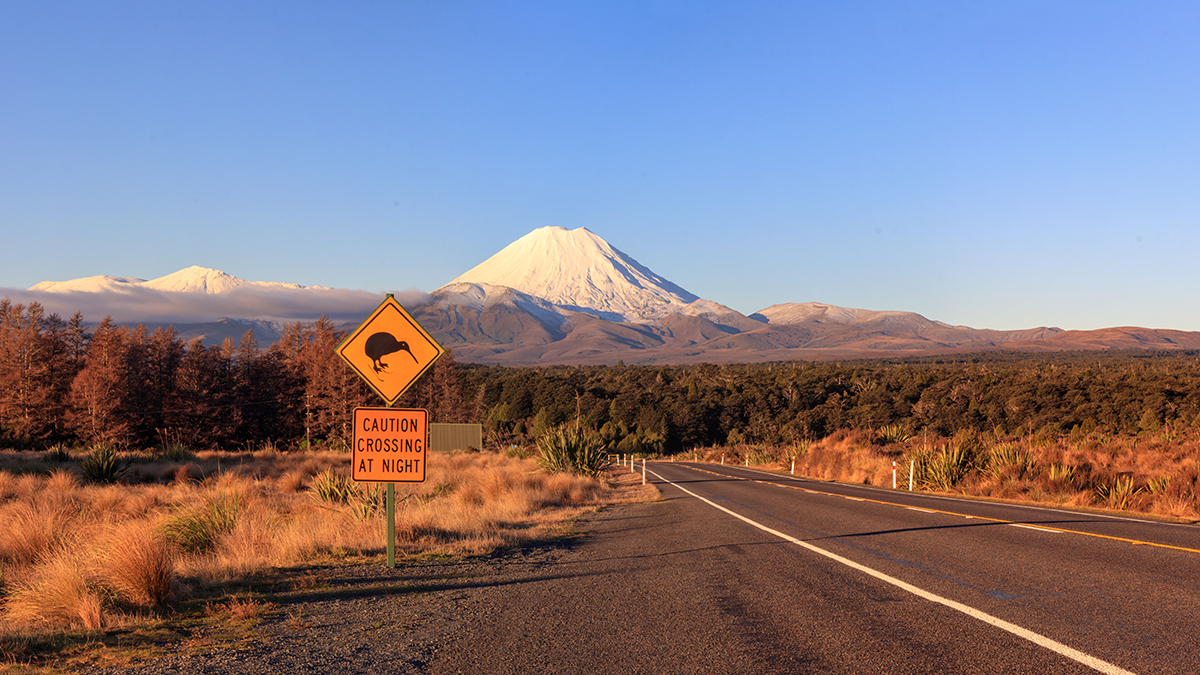If you’re planning on travelling to New Zealand for the first time, then you’ve probably already noticed that it requires a decent amount of preparation, particularly if you’re going for an extended period of time. Despite there being a phenomenal range of one of a kind adventures, it is not unheard of for travellers to postpone plans due to long flight times, misunderstanding the climate or even feeling there isn’t enough time to do everything on your dream destination list.
To All Ways Tailormade, this is a huge shame, because New Zealand is a fantastic and unique country with so much to offer. When the planning process is broken down, or you find a trusted travel company that tailor makes holidays on your behalf, it becomes simple. But where, exactly, should you start?
How to start planning your trip
Here are some important things to consider when you start planning your holiday to New Zealand:
Choose the time of year
One of the first decisions you’ll need to make is when to visit New Zealand. The country experiences all four seasons, so your ideal travel time will depend on the activities you want to do and the type of weather you enjoy.
The seasons in New Zealand are different to those across Europe and the US, so it’s worth doing your research carefully to make sure you travel at a time when the climate suits you. We’ll discuss this further below.
Creating a budget
Budgeting is one of the most important steps when planning a trip to New Zealand. Since you’re planning for an extended stay, it’s crucial to manage your spending wisely.
You’ll need to consider:
- Flights
- Accommodation
- Food and dining
- Transport
- Activities and Excursions
- Travel Insurance
- Visa
Booking your holiday with a bespoke holiday provider or as a group tour can make this process far simpler. All the details will be taken care of on your behalf to create an adventure that is tailored to you.
Practical considerations for your trip
Some other vital considerations for your trip include:
- Travel insurance: Always ensure you have travel insurance to cover any unexpected mishaps or emergencies.
Visa requirements: Most travellers will need to apply for a visa to visit New Zealand. Depending on your nationality and travel purpose, you may need a tourist visa, working holiday visa, or other permits. It’s important to apply for this well in advance to avoid any delays. - Health and safety: Make sure to check health requirements, especially if you’re traveling from a country with specific vaccine mandates. Carry a basic first aid kit, and always check weather conditions when engaging in outdoor activities.
- Packing for New Zealand: Due to its diverse climate, packing for New Zealand can be tricky. You’ll need layers for different types of weather, as temperatures can vary dramatically between regions. Don’t forget sturdy footwear for hiking, a good rain jacket, and factor 50 sun cream.

Best time of year to visit New Zealand
Summer (December to February)
This is the high season in New Zealand. Expect warm temperatures and an abundance of activities and vibrant festivals that will fill up every moment of your time. You can experience:
- Waterports
- Beach adventures
- Sightseeing
- Festivals
- Wildlife spotting
- Cultural experiences
- Whale watching
- Geothermal spas
Autumn (March to May)
For a quieter experience, autumn is a great option. The weather is still pleasant, and you’ll avoid the summer crowds. The South Island, in particular, is known for its wonderful autumn foliage.
March and April are recognised as the grape harvest season, so you’ll be able to stroll through vineyards and enjoy truly beautiful wine tasting experiences amongst the vines. These months are recommended for hiking and sightseeing because you’ll keep warm on your adventures without being exposed to the beating summer sun.
Winter (June to August)
If you’re a winter sports enthusiast and love to glide down sweeping ski slopes, then New Zealand’s ski resorts in the South Island will be the perfect place to visit from June to August.
Although it’s colder during the winter months, you will feel the full benefit of geothermal pools, hot springs and an abundance of local culture.
Spring (September to November)
Spring is a lovely time to visit with mild temperatures and plenty to explore, similar to Autumn except for the addition of beautiful flowers blooming all around the country.
It’s also a great option if you want a balance of lovely warm weather and fewer crowds.
How to apply for a New Zealand visa
If you’re visiting New Zealand from the UK, then you will need a visa. To apply, you must:
- Determine which visa You need: The most common visa for tourists is the visitor visa which allows you to stay for up to 9 months.
- Online application: You can apply for most visas online through the New Zealand Immigration website. Be sure to submit all required documents and pay the application fee.
- Processing time: It can take anywhere from a few days to a few weeks for your visa to be processed, so apply well in advance of your travel date.
- Additional documents: Depending on your visa type, you might need proof of sufficient funds, travel insurance, and a return ticket.
- Stay informed: Rules and visa requirements can change, so check the official New Zealand Immigration website for the most up to date information before applying.
How long should you stay in New Zealand
The ideal length of stay depends on your interests and how much you want to see. Some travel websites will recommend the typical week but this simply doesn’t give you enough time to see everything the country has to offer.
Two to three weeks can be perfect for indulging in the highlights, but often restrict you to either the North or South Island. You might have time for scenic drives, plenty of hikes and visits to iconic cities including Auckland, Sydney, Rotorua or Queenstown.
However, we’d recommend upwards of two weeks, as longer trips of one or even two months will give you plenty of time to explore the phenomenal experiences and landscapes that are so unique to this vast country, whilst allowing time to breathe and rest in between.
If you have more time, you can really dig deep into the culture and countryside, exploring lesser known spots and experiencing the charming local life more intimately.

How to get to New Zealand
Travelling to New Zealand is possible by major airline flight or private charter, depending on your preference. You can fly into most cities including:
- Queenstown
- Auckland
- Wellington
- Christchurch
- Dunedin
The country has two major international airports that are well connected to most cities across the globe: Auckland Airport (AKL) on the North Island and Christchurch Airport (CHC) on the South Island. If you’re travelling from the UK, US or Europe, your flights will likely land at either of these options.
Flights will often have stops, but these will be made easy to navigate to make the flight as simple as possible. You can expect the following if you’re flying from the UK or New Zealand:
From the UK: The total flight time from the UK is typically between 24 and 30 hours, with a stopover in Asia or the Middle East. Flights will include catering and include everything you need to sleep and relax on the flight including toothpaste, blankets and entertainment systems.
From the US: Flights from major cities like Los Angeles and San Francisco are common, with a flight time of around 12 to 15 hours. They will likewise include food options for the journey.
New Zealand currency
The official currency of New Zealand is the New Zealand Dollar (NZD). As with any currency, you’ll be able to exchange cash at your local post office or your airport before flying.
Exchange rates
Exchange rates for currency fluctuate so it’s important to double check this before you fly.
You can use the Post Office Travel Money page to double check the current exchange rate from GBP at any time.
How to pay in New Zealand
ATMs are readily available in cities and towns, and most businesses accept credit or debit cards. However, it’s always a good idea to have some cash on hand, especially in more remote areas.
Don’t forget to check foreign currency charges with your bank to make sure you don’t need to pay additionally when you use your card in another country.
Do you tip in New Zealand?
Tipping isn’t mandatory in New Zealand, but it is recommended for good service, similar to the rules in the UK. You are more than welcome to tip if you’d like to.
Booking a guided tour
If you’re planning a holiday to the unspoilt landscape of New Zealand and wish to travel in style, comfort and unparalleled ease, then All Ways Tailor Made Travel has the ideal solution for you.
Our 28 Day Small Group Escorted Tours are the perfect way to explore one of the world’s most beautiful countries whilst guided by local people who will provide you with unique insights into their country. This tour has been carefully curated to show you the very best of New Zealand, covering spots such as Auckland, Bay of Islands, Rotorua and Te Anau with luxury accommodation, food and private touring coaches included.






